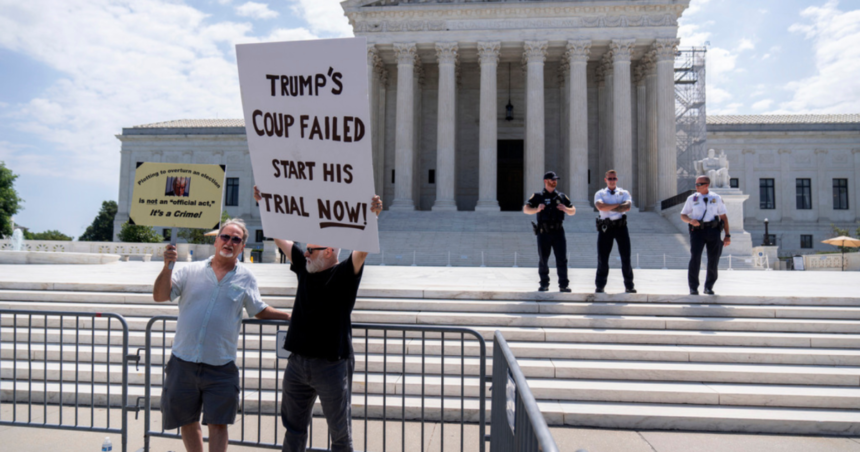The Supreme Court issued multiple significant rulings on Friday, including a case that narrows obstruction charges against individuals involved in the January 6 riot.
In a 6-3 decision, the court determined that there must be evidence of an attempt to tamper with documents or records for obstruction charges to apply.
Chief Justice John Roberts, in favor of the majority, stated, “Nothing in the text or legislative history indicates that this subsection was intended to impose a maximum penalty of 20 years on all individuals who commit obstruction of justice in any manner and may be subject to lesser penalties under more specific obstruction statutes.”
The case will now go back to a lower court to apply this new standard, potentially leading to the dismissal of charges for other defendants involved in the January 6 events.
Related Story: Supreme Court says DOJ went too far with charges against Jan. 6 rioters
Justice Amy Coney Barrett, in dissent, argued, “Once Congress establishes the limits of liability, the executive branch has the discretion to choose which cases to prosecute within those limits. By textually narrowing §1512(c)(2), the court has not respected the authority of the political branches.”
Jeffrey Green, the lawyer for Joseph Fischer, the defendant in the case, expressed satisfaction with the Supreme Court’s decision.
“It’s always a great feeling to prevail against the government in the United States Supreme Court — that doesn’t happen often,” Green said.
The court’s ruling could also have implications for the federal case against former President Donald Trump, who is facing a similar obstruction charge.





